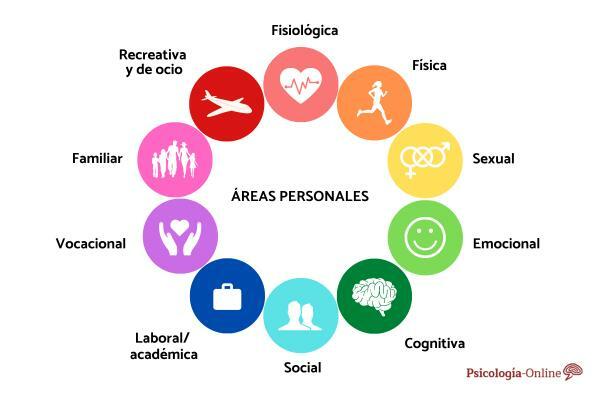
Impulsive people are those who act without thinking about the negative consequences that their actions or words can generate, both personally and towards other people. Therefore, these are people who act on impulse, spontaneously, without being able to prevent their behavior. Although it is also important to bear in mind that on certain occasions in everyday life, presenting certain degrees of impulsivity may be normal and necessary. If you want to know more about impulsivity, I invite you to continue reading this Psychology-Online article: what is impulsivity in psychology.
Index
- What is impulsivity: definition
- Characteristics of impulsive people
- Is impulsivity a disease?
- The impulsive personality
What is impulsivity: definition.
From the psychological perspective, the concept of impulsivity is understood as a characteristic symptom of some mental pathologies, such as a tendency to perform acts without planning them in advance
Characteristics of impulsive people.
Impulsive people tend to have a series of common characteristics:
- They act without thinking.
- Difficulties or inability to prevent their behavior.
- They like to live risky experiences and they are always or almost always in search of this type of experience.
- They tolerate little boredom and frustration.
- They are disorganized, they do not plan their activities.
- They forget the things they have to do, such as arriving at a certain time at a certain place, they tend to be late.
- They are not very constant, they like to change activities frequently.
- They act inappropriately, usually causing problems due to their actions.
- Impatient, for example, difficulty respecting the turn to speak.
- Creative
- Decreased sensitivity due to the negative consequences of one's own behavior.
- Immediacy of responses: they react quickly to stimuli, they are not reactions planned, carried out before the processing of the information transmitted by said stimuli. That is, they respond to stimuli immediately, without thinking.
- They do not worry about the consequences of their actions.
- Spontaneous acts.
Is impulsivity a disease?
Impulsivity can be due to genetic causes, a deficit of serotonin (a hormone that allows the regulation of behaviors) or, due to the fact of suffering from a mental disorder. Is impulsivity a disease? In some cases, the impulsivity is one of the symptoms that characterizes certain mental disorders. For example, attention deficit disorder with or without hyperactivity (ADHD), Borderline personality disorder (BPD), bipolar disorder, impulse control disorder, antisocial personality disorder (APD), Conduct disorder and substance dependence disorders are disorders in which the presence of the impulsiveness. That is to say, to a great extent, people who suffer from any of these disorders also present impulsive attitudes that can affect different areas of their daily lives. However, the impulsivity is not considered a disease In herself.
The impulsive personality.
We understand the features of the personality as those basic elements that constitute and characterize the personality of people. Personality traits are those that predispose us to respond in the same way or in a similar way to different stimuli or situations. Therefore, impulsive people as a trait of their personality will often respond impulsively in different situations, so that it can negatively impact multiple areas of these people's lives, since they are impulsive people by nature. Therefore, it is not about people who act impulsively at specific moments, in this case we would be talking about people who show impulsivity as a state of the personality.
Impulsiveness can also present itself as a personality state. Contrary to personality traits, impulsivity as a personality state is characterized by manifesting impulsive acts in a timely and temporary way, without being planned in advance. Typically impulsivity as a personality state occurs in response to environmental or biological disturbances. An example of impulsivity as a personality state would be when a person shows impulsive attitudes due to the temporary effect of the consumption of a specific drug. When it comes to situations in which it is necessary to act impulsively, such as when your life is in danger and you must act quickly and without thinking to save yourself, it would also be a temporary and punctual impulsivity, understood as a state of the personality. With this impulsivity test You can tell if you have impulsive traits.
This article is merely informative, in Psychology-Online we do not have the power to make a diagnosis or recommend a treatment. We invite you to go to a psychologist to treat your particular case.
If you want to read more articles similar to What is impulsivity in psychology, we recommend that you enter our category of Personality.
Bibliography
- Medina, A., Moreno, M.J., Lillo, R., and Guija, J.A. (2017). Impulse control disorders and psychopathies: psychiatry and law. Spanish Foundation of Psychiatry and Mental Health.
- Sánchez, P., Giraldo, J.J., and Quiroz, M.F. (2013). Impulsivity: a view from the neuroscience of behavior and developmental psychology. University of La Sabana, Colombia. Advances in Latin American Psychology / Bogotá (Colombia), 3 (1), 241-251.


